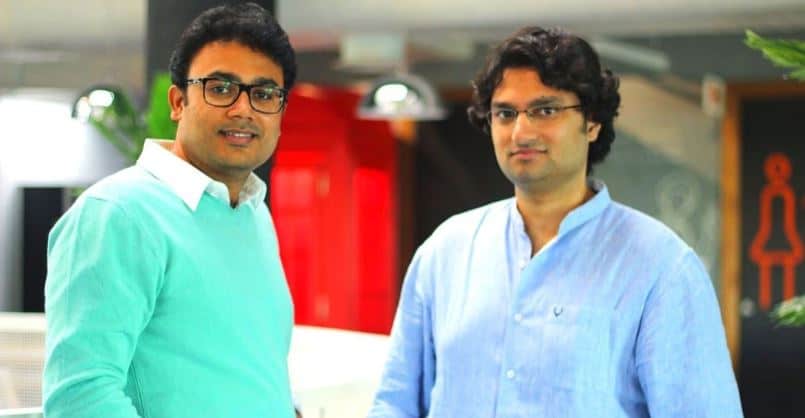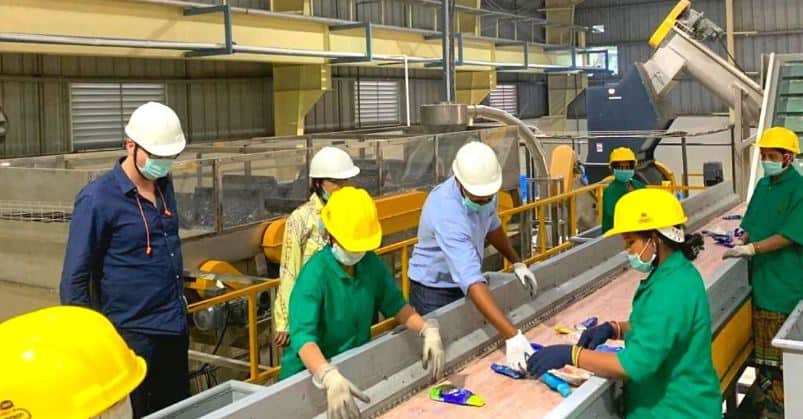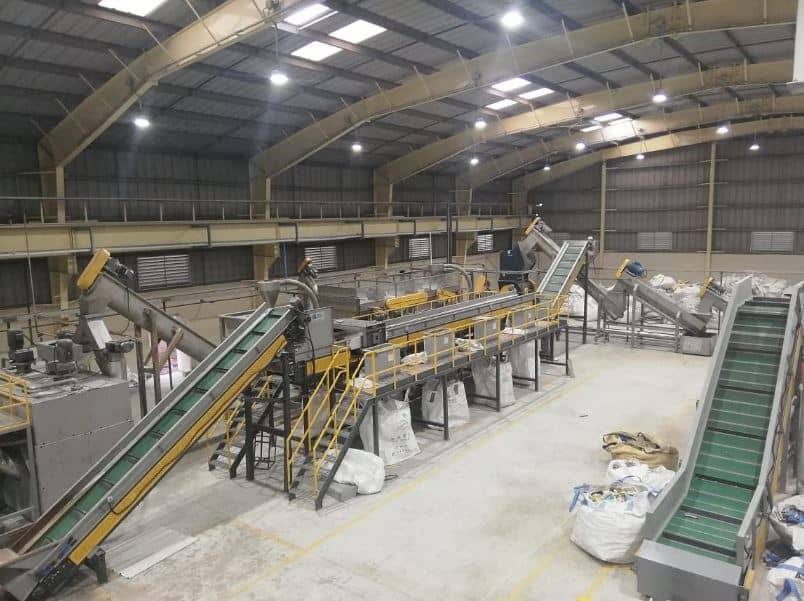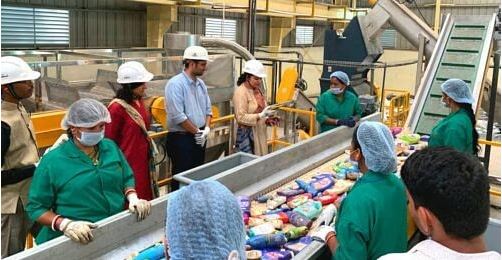Banyan Nation, a Hyderabad-based vertically integrated plastic recycling company, recently announced that they produced over 300 million FMCG bottles from recycled plastic in the past year for major clients like Hindustan Unilever, Shell, HPCL and Reckitt.
In a country where plastic recycling is still largely confined to a fragmented informal sector and tonnes of waste end up in landfills, Banyan Nation has designed a unique system which allows them to collect plastic waste in vast quantities and produce premium-quality recycled polyolefin plastics (PE and PP). This is used in quality packaging applications such as shampoo, detergent and lotion bottles. The venture sources raw plastic waste using its proprietary technology platform which integrates thousands of workers in the informal sector into its supply chain.
After recycling their waste using their proprietary cleaning and decontamination technology, the company generates near virgin quality recycled resins that are used in mainstream consumer packaging applications. Not only do Banyan Nation’s recycled plastics meet United States (US) and European Union (EU) packaging and plastics safety standards, but also ensure that the raw materials they source come from a 100 per cent traceable supply chain.
“Banyan can process over 1,000-1,200 tonnes of plastic waste per month at its recycling facility in Hyderabad. We source scrap plastics from cities across the country. Although historically we have a stronger foothold in the South, we are expanding procurement to North, West, and East in a big way,” says co-founder Mani Vajipey, speaking to The Better India.

Coming back home
It was at Columbia Business School, where Mani, who was pursuing an MBA (2011 to 2013), came up with the idea for Banyan Nation. An electrical engineer by training, he also shared an abiding passion for the environment and understood India’s massive non-recycled plastic waste problem. Except for water bottles, he knew that most plastic waste in India was downcycled. The concept of recycling was still in its infancy and relegated to the informal sector.
So, in 2013, he founded Banyan Nation to solve this growing problem. Under the mentorship of Ron Gonen, a pioneer in waste management, he incubated Banyan Nation at Columbia. After a series of phone calls, he was soon joined by his friend and batchmate from the University of Delaware Raj Madangopal. At the time, Raj was working for a startup in Seattle, but like Mani, held a strong desire to come back home and make a real difference.
As part of the university’s incubator programme, Mani and Raj travelled to Hyderabad and Bengaluru to do research. For their research, they spoke to a whole host of stakeholders from managers at large multinational companies and city municipal commissioners to private waste management contractors, informal scrap collectors, rag pickers and kabadiwalas.
After conducting thorough market research over three months, visiting various locations and townships in cities like Hyderabad, and interacting with direct stakeholders, what the two realised was that India was in desperate need of a venture that could streamline the entire process of plastic waste management right from collection to transportation and recycling.
Upon their return to the US, they also spent an additional three months visiting a whole host of facilities in New York and the Bay Area to understand the process of waste management. After formally quitting their respective high-paying jobs (Mani was employed with Qualcomm while doing his MBA) and returning to India, the duo formally incorporated their venture in July 2013.

Integrating informal workers
How does the Banyan Nation integrate these informal workers into the supply chain and ensure that the raw materials they employ are sourced from a 100 per cent traceable supply chain?
“Armed with Banyan’s Mappr App, Banyan’s field team first geotags and collects vital data on all the scrap traders in a city—what material they collect, how much they collect, and how much trade. Once we identify a set of such scrap traders we can work with, Banyan’s team trains them on our quality expectations, and social compliance expectations such as ensuring no child workers, regard for personal safety, fair payment of wages, etc.). They are then on-boarded on Banyan’s Tradr platform where we log all trades and track their progress through time and space through uploaded photos and updates in the mobile app,” explains Rashi Agrawal, Director of Business Development, Sales and Compliance at Banyan Nation.
In this way, they ensure that each kilo that comes into Banyan’s facility is traceable to its source. By training and onboarding such informal scrap traders they can integrate them into formal supply chains. “Our field team regularly ensures that they are compliant with all of Banyan’s and its customers’ supply chain sustainability requirements,” she adds.

Producing premium-quality recycled polyolefin plastics
Banyan’s proprietary cleaning and decontamination technology is a result of years of research and development on Indian waste streams.
“We first understood the specific challenges in the Indian waste stream—such as printed inks on packaging, labels, adhesive, mixed product contaminations, etc—and developed a washing process that eliminates these contaminants without degrading the basic polymer properties. We have a series of quality checks at each stage of the process that ensures the final product complies with the safety standards of our clients who are global brands,” claims Rashi.
Speaking to Forbes India in an interview last month, Mani said, “We are scaling up our plastics washing technology to develop premium-quality recycled plastics in injection, blow and extrusion grade materials for applications across diverse industries. Our goal is to achieve scale and profitability while staying true to our core mission of solving the menace of plastic pollution and creating lasting environmental and social impact.”
As stated above, in the past year, over 300 million bottles for FMCG companies have been produced from recycled plastic. But there are plans afoot to expand their capacity.
“We will be at 1 billion recycled plastic bottles per annum by the end of 2023. We have plans to install additional capacity and capture the opportunities that lay ahead in many other industries where plastics are a key raw material,” says Rashi, speaking to The Better India. Their current installed capacity barely covers 1 per cent of the demand for recycled plastics forecasted in 2025.
In other words, the scope of the problem is massive. However, Banyan Nation believes that greater collaboration with policymakers, large corporations, startups and customers can allow them to scale up faster and induce a greater systemic shift in how plastic is managed in India.
For their efforts, the venture has received a whole host of awards ranging from the World Economic Forum’s (WEF) Global Technology Pioneers (2021) to the 2018 Intel DST Award Innovations for Digital India and the Millennium Alliance Grant (2016).
Looking ahead, Rashi believes that plastic waste management is finally making its way into the consciousness of Indian consumers. However, she has some recommendations as well.
Consumers should choose brands that use responsibly recycled plastics, and that commit to minimising the use of virgin plastics in their packaging.
“It takes just a few seconds to read the label and choose a product that uses recycled packaging. Consumers can also support our scrap traders and waste management personnel by properly segregating the waste—ensuring that anything hazardous like medical or battery waste or wet waste is not mixed with recyclable waste. Having said that, I believe that the Indian government is already ahead of the curve by coming up with a framework for managing plastic waste through Extended Producers Responsibility (EPR guidelines. We just need more support from the government for the development of the recycling ecosystem in India,” she concludes.
Packaging 360 is a comprehensive knowledge sharing ecosystem for the Indian packaging industry. Our services include an online content platform to deliver news, insights and case studies; organising conferences seminars and customised training; Providing Bespoke Project Consulting, Market Research and Intelligence.







